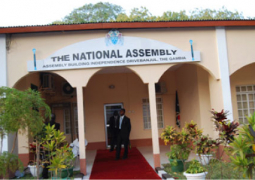Happily the rainy season is here again, and the expected normal to above downpour of rains this year in the Gambia, would help the production of groundnuts, maize, millet and other grains in the country.
Higher output during the season will directly reduce hunger, and bring down the cost of food imports. It will also have wider economic benefits, from stimulating rural incomes to providing raw materials for local industries and export to the developed countries.
Investing in the reduction of hunger is a moral imperative that would help beat down the menace of malnutrition and other social scourges that have direct bearings on food consumption.
We pray for good rains and a rich harvest this year.
Good agricultural production not only feeds families, but also fuels exports and concomitant export earnings necessary for the import of basic commodities.
Despite the fact that national agricultural production has been fluctuating over the years, the sector needs more attention that would help boost production.
Since the problems facing African farmers are numerous, the solutions must be comprehensive, requiring sustained action across many different fronts.
Above all, African governments and their external partners must support the labour of Africa’s millions of poor, small-scale farmers. High economic growth rates cannot be realised unless farm production is significantly increased.
Africa’s leaders should intensify efforts to find sustainable solutions to hunger and poverty.
Where such solutions exist, the challenge facing African leaders will be to find ways to strengthen them and replicate best practices in other localities and countries. Where there are few solutions to build on, new initiatives and programmes will have to be promoted.
The continent can also shield itself against the food crisis through generating its own resources for development by being more cost effective in public financial management as well as by avoiding waste in public expenditure and eliminating corruption, while at the same time create a conducive legal and financial environment for the indigenous private sector to grow.
"Agriculture not only gives riches to a nation, but the only riches she can call her own"
Samuel Johnson



